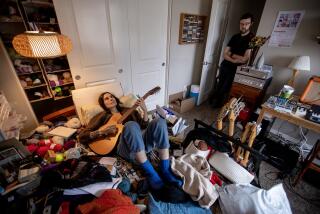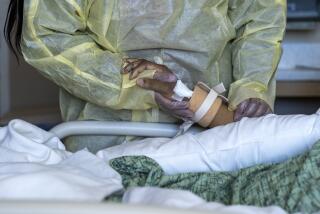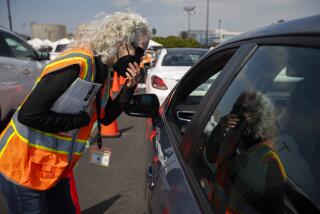Op-Ed: A year ago, we asked you to share tales from the pandemic. Here’s what some of you told us

- Share via
From last March to now, we’ve heard from dozens of people reaching out from quarantine. They wrote about life on the frontline and life interrupted, of lockdowns and shutdowns, masking and Zooming — and the pursuit of normality. Here’s what they told us, excerpted and updated.
MARCH
We should have been twirling around to Whitney Houston in a friend’s backyard in Phoenix, me looking like Paul Newman in a navy suit and her like Joanne Woodward in a white gown I still haven’t seen. Life had other plans.
Ben Houston of Santa Monica ended up postponing his wedding twice. His new wedding date: March 26.
::
My wife and I, and millions like us, have entered a period of what we might call “binary confinement.” It’s like solitary confinement, but you do it with your spouse. It will be interesting to see how that works out.
Barry Goldman is an arbitrator and mediator in Michigan. After a year of binary confinement, he still likes his wife better than anyone else.
APRIL
At 5 a.m. Tuesday I watched my mother being buried from my living room, captured on FaceTime by my niece from her car as if on safari. … I saw it all unfold on my phone, as if I were a voyeur. … Of all the imaginables, this was not one.
Casey Cohen is a Los Angeles psychotherapist. His mother died of complications from COVID-19. While grieving during quarantine, his “journey to balance” has been slowed by the inability to fully engage with everyday people.
::
The puzzle arrives in a box, dismembered into “one thousand pieces.” … If we ever need to pass time during another quarantine, we know not to cavalierly empty the box on a brown coffee table. The tree pieces blend with the wood.
Peter Gerrard lives in Irvine. It took him and his wife about a week to finish the puzzle. Then they ordered a few more. Now the puzzle is “how to repair relationships the pandemic has sundered.”
::
My greatest fear is that if I contract and die from COVID-19, my wife, who is on a dependent visa, will be asked to go back to India.
Gurmukteshwar Singh, a nephrologist in Danville, Pa., is still caring for COVID-19 patients. He was among the first at his hospital to voluntarily get vaccinated.

MAY
My scrubs are my mark of Cain, my neon sign broadcasting to the world that I am someone to be avoided, someone to be feared. Walking down the street, I have never felt more alone.
Samuel Yamshon is a physician at New York Presbyterian-Weill Cornell Hospital who was deployed to the ICU. He is struck by “how dark things felt then” versus the optimism of today.
::
Many of my high school students have sent me emails apologizing profusely for not turning in the work I assigned, for not watching the videos I made, and for not responding to the many emails I sent. My 9-year-old son loudly and passionately bemoans yet another Zoom meeting. My teen daughters … keep asking me “what’s the point?” They know the best grade they can get in their classes is a banal “pass.” No one seems motivated. … No one is enjoying the learning process.
Jeremy Adams is a political science teacher in Bakersfield. He is supposed to return to the classroom April 12 to teach high school seniors.
JUNE
We often pack the living room to watch a movie. We sit shoulder to shoulder for morning meditation. Most of us sleep two to a room. … We might make a nervous joke when someone coughs. But no one really wants to make it an issue. We even went to get tested for COVID-19 together. … For now, communal living has been a godsend. We run the risk of physical illness, but we keep the plague of loneliness at bay.
Chris Vognar is a freelance writer based in Houston. He got COVID-19, recovered and still resides at the communal living house.
JULY
The World Health Organization announced the coronavirus outbreak had become a pandemic on March 11, 2020. Since then, the virus has seemingly touched all aspects of life in Southern California and beyond. The Times looks back on a full year of life in a pandemic.
Recovering from a severe case of COVID-19 is not like switching a light on or off. It’s more like a dimmer switch, where the light gets brighter, then darker, then brighter again. And the process of recovering often takes much longer than many patients and their loved ones expect. … The next time you chat with someone who had a serious case of COVID-19, try asking, “How’s your recovery going?’ instead of “Are you recovered yet?” For all too many of us, the answer to the second question is either “no” or “I don’t know” — and when that will change is anyone’s guess.
David Lat is the founding editor of the website Above the Law and a managing director in the New York office of Lateral Link, a legal recruiting firm. His cardiovascular endurance remains diminished, but he now feels “fairly recovered” from COVID.
::
While describing the dessert selections through my mask and face shield for the guests at a table for four, a customer mimicked my face coverings while mocking my muffled voice. “I can’t understand you through your welding shield,” he said with a chuckle. I pointed out that while this might be funny to him, I was risking my life to be here — and serve him.
Brian Ramian, an actor and filmmaker, has spent more than 20 years in the service industry. Recently, restaurant guests have displayed “a refreshing new attitude” about safety protocols.
AUGUST
Performers cannot survive for long without a live audience and a stage, but the coronavirus quarantine is a sudden chance to recalibrate ourselves. Without the pressure to fill a large hall with sound or to practice for hours for a concert date, we are able to reach into the music for its own sake. We play for pleasure and share it, if and when we feel like it.
Inna Faliks is a concert pianist and head of the piano department at UCLA Herb Alpert School of Music. She has livestreamed 28 of her weekly living room concerts, Corona Fridays.
::
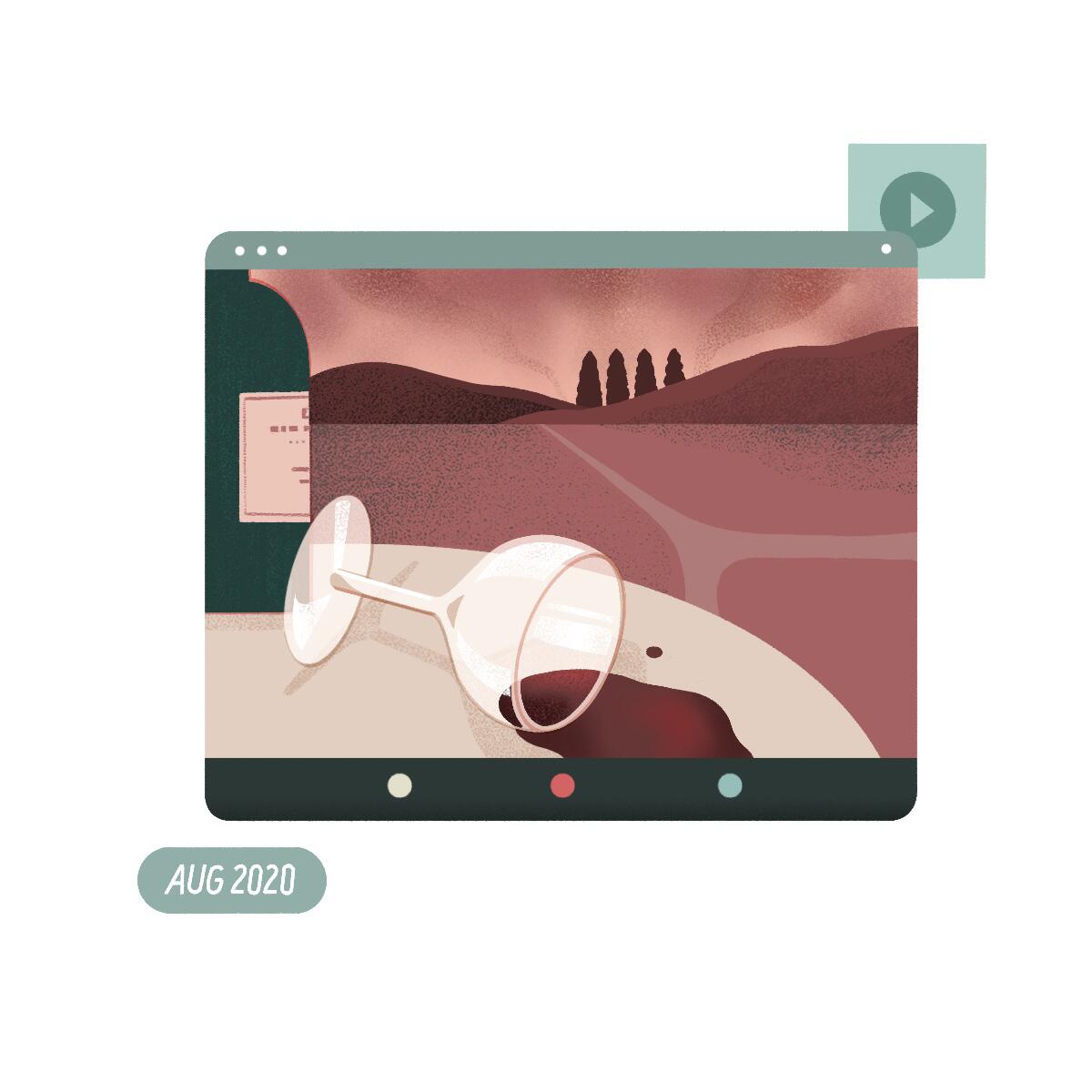
It’s 112 degrees. I’m blinking sweat out of my eyes as I try to breathe through my mask and talk to my guests about the 2017 Cabernet Sauvignon in their glasses. … But I continue on, talking about the distinguishing factors of that vintage: severe heat and wildfires. With COVID-19, wine tastings in Napa Valley can happen only outside. … It’s hard to sell wine when the weather forecast is smoky, it’s raining ash and the global pandemic keeps people home.
Olivia L. Eckerson was a wine educator in Napa Valley when the LNU Lightning Complex fire struck. She now hosts virtual wine tastings from Massachusetts.
SEPTEMBER
Despair flickers in and out. Sometimes “safer at home” can feel like a cozy sleepover with your family during which you are wearing sweatpants and watching movies, and sometimes the world, which it turns out you actually liked, is coming to an end. There was a moment, early on, when a friend said to me: Can life as we know it be over if you can still get that special crumbly goat cheese you like from FreshDirect?
Katie Roiphe is director of New York University’s cultural reporting and criticism program. Fully vaccinated, she is luxuriating “in the first glimmers of normalcy.”
OCTOBER
My brother died in April … but that’s not when we lost him. He disappeared from our lives almost 40 years ago, when he was diagnosed with schizophrenia. … Like so many who have lost a family member in this horrid time, we did not gather. We reflected on his suffering in private, alone, sharing our complicated memories and sadness in bits and pieces. He was never tested for COVID; the cause of death is one more unanswered question about his life.
Jillian Horton is an internist in Canada. Her memoir, “We Are All Perfectly Fine,” was published in February.
NOVEMBER
In the midst of a pandemic, in the midst of a divorce, [the Facebook group] Buy Nothing is reassuring. It is the good side of humanity. Even if I was late to the party responding to the post about Livia’s beautiful, decadent-looking homemade soup, and thus lost out to Azalia, just knowing someone had cooked from scratch and then offered up the results to 1,800 or so of her neighbors gives me hope that we will get through this, that I will get through this.
Leslee Komaiko is a writer in Sherman Oaks. She recently gave fairy wings to a Buy Nothing member named Pixie who wanted them for her magic act.
DECEMBER
I’m a volunteer in San Francisco doing contact tracing alongside librarians and other city workers redeployed to this duty. … There is explicit collaboration. While familiar to me, these methods seem natural to the librarians. Librarians know more about the city … than I ever would have imagined.
Margaret Handley is an epidemiologist and a professor at UC San Francisco. She still works with the library team, conducting interviews.
::
His room’s only window looks out on a courtyard set in the middle of the large care facility. “Why did we go with a courtyard view?” I asked my mother over the phone. “Because we thought it was better for your dad than looking out on a parking lot,” she said. She couldn’t have known that it would come to this, that her only chance of seeing him would be through windows from the parking lot.
Carrie Friedman is a writer in Los Angeles. Her father recovered from COVID-19, contracted in a Wisconsin nursing home. Her mother and brother, outfitted in PPE, were able to visit him in January.
::
Before the pandemic, my husband and I managed a staff of more than 100 among our four restaurants. Now we’re down to one location, in Playa del Rey. Decimating our staff was never part of our business plan.
Brooke Williamson is chef-owner of Playa Provisions and a “Top Chef” winner. Despite a rollercoaster year, she is “genuinely optimistic” about her restaurant and the industry.
JANUARY
During surgery, the team always struggles to hear one another — the extra-thick masks and face shields mute sound. At one point, we all mention we’ll receive the second round of the vaccine the next day. Well, all except one. One team member says he doesn’t want to get the shot, at least not yet. … My immediate impulse is to tell the naysayer to get out of the OR and never come back. Instead, I quickly compose myself and ask, “Why on Earth not?” Silence. Then I hear an “I just want to wait and see.” And I thought our greatest risk would come from the patient, anesthetized on the table.
Ian Ross is a neurosurgeon who practices in Southern California. Most of his hospital colleagues have gotten vaccinated, but resisters remain.
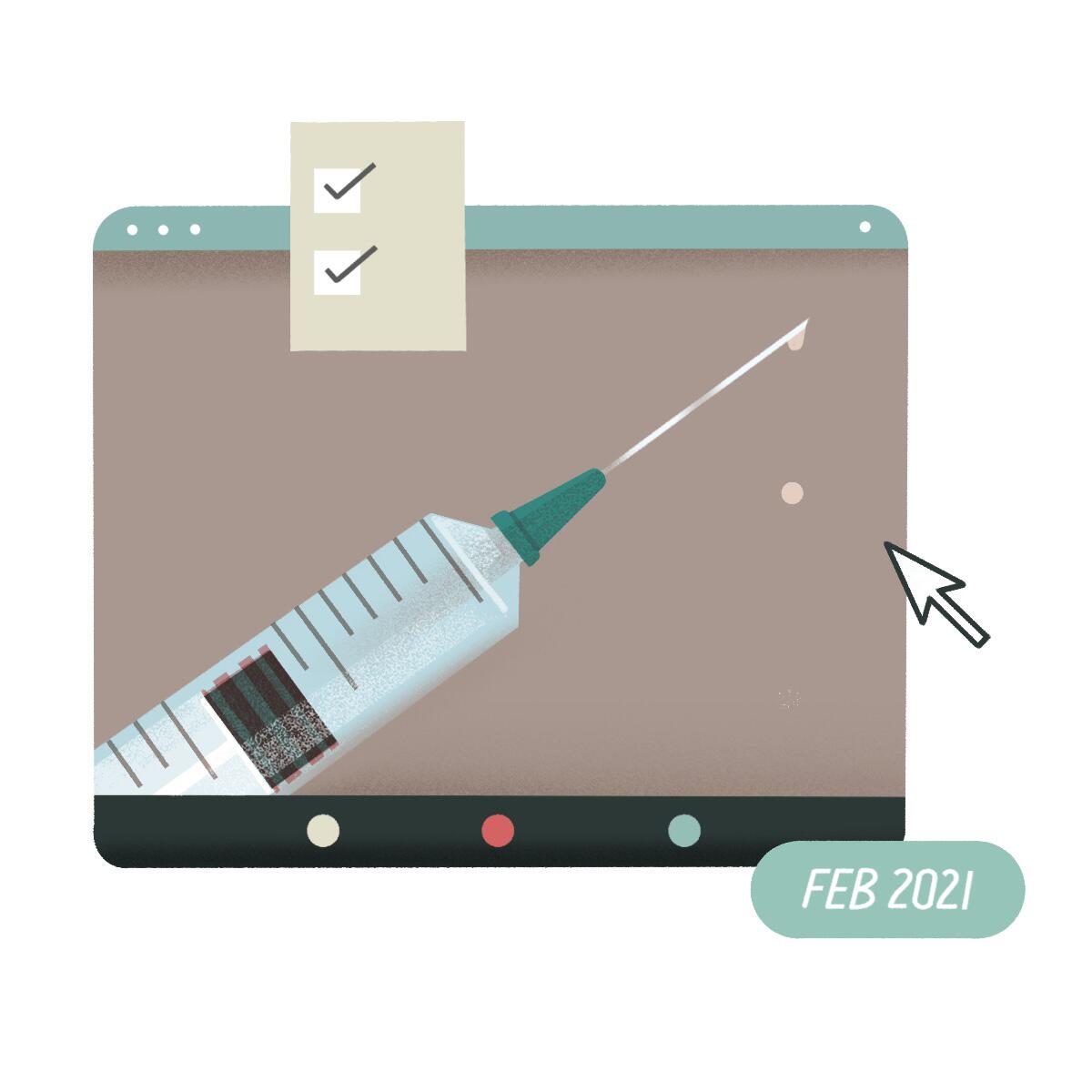
FEBRUARY
When my parents finally received their first dose of the Pfizer COVID-19 vaccine, I was not ecstatic. Far from it. The overarching feeling was rage. The long road to getting those precious jabs in their arms brought into sharp focus how truly broken our healthcare system can be.
Dipti S. Barot is a primary care doctor in the San Francisco Bay Area. With her parents fully vaccinated, her family feels like they can “breathe easier.”
More to Read
A cure for the common opinion
Get thought-provoking perspectives with our weekly newsletter.
You may occasionally receive promotional content from the Los Angeles Times.

